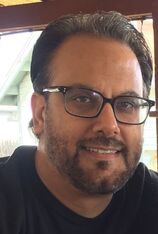 San Diego County Democrats for Environmental Action will soon be taking up a number of electoral races in which to consider endorsements. Before we hold any endorsement meetings--and without any specificity to any particular races or measures that we might consider--I’d like to share our process and member voting eligibility requirements as laid out in the club’s bylaws, and my own thoughts on the process. Procedure The club’s Political Action Committee shall notice races for consideration, help in shaping candidate questionnaires, conducting the endorsement meetings, and then noticing endorsed candidates for supporting actions by the club. Endorsement considerations will be presided over by our VP for Political Action Steve Rivera. Questions for candidates will be submitted for moderation and may only be submitted by eligible voting members. * For endorsements conducted via Zoom, the chat will be turned off. Interruptions will not be tolerated, and disparaging comments or personal attacks will be ruled out of order as we conduct respectful and fair hearings. If you have a pointed question that you’d like to ask that relates to environmental issues and positions that the club has taken, please submit them for moderation. As our by-laws in fact state: Members are encouraged to ask questions relevant to the Club's mission of advancing environmental or green issues, of candidate viability, fundraising ability, endorsements, or the candidate's "vision." In keeping with our community agreement of "step up, and step back" please keep questions brief and to the point in consideration for both our candidates and to allow space for fellow club members to step up and ask questions that might relate to other concerns you have. As we prepare to vote, candidates and attending campaign personnel will move into a break-out room (Zoom) or outside of the room where the voting will take place (for in-person meetings). We will recognize up to three speakers to speak for each candidate or for the “No Endorsement” option. Members speaking during this discussion segment must disclose if they are working for any candidate being considered or are in the employ of a company or organization with a vested interest in the outcome of the endorsement or stand to gain in any way from the candidate’s endorsement or electoral success. Members giving comments during this segment must clearly identify the candidate or position they are speaking for, and avoid disparaging comments or personal attacks which will be ruled out of order. Voting *Per our by-laws, an eligible voting member is one whose club dues are current, and who has attended at least two club meetings as a member within the past 12 months. Our balloting procedure shall allow each voting member to cast ballots unseen by other members. Balloting follows a ranked-choice format, with eligible members selecting their first, second, and third choices. In each round of the ranked choices and vote counting the option for No Endorsement is a valid choice that does not get dropped. If a tally of the votes shows that a candidate has reached the threshold of 60 percent of votes, permission is granted for use of our club's name and logo on the campaign’s website and on campaign literature. The club shall instruct its Associate Member(s) to the San Diego County Democratic Party's area caucuses to cast votes in support of the endorsed candidate, toward the official endorsement of the County Party. The club will list the official as endorsed and may act to publicize candidate events or to organize actions in support of the candidate. Five Things: 1. We are an environmental club, and we should be endorsing candidates running on strong environmental credentials. We do not owe an endorsement to any candidate just because they are the incumbent or preferred Democrat in the race. There seems to be a tendency in voting that the end result should result in the endorsement of an individual candidate; the option for No Endorsement is always viable and should not be overlooked. 2. In voting for candidate to gain the club’s endorsement, consider what actions you would commit to in support of the candidate through the remainder of the election cycle, should the club endorse. Will you show up to canvass neighborhoods in the candidate’s district? Will you volunteer time to do phone banking? Will you make financial or other volunteer contributions toward that candidate’s success? If the club organizes a fundraiser or canvassing effort for the candidate, will you come out? 3. As aforementioned, our club has enacted bylaws to ensure that eligible voting members in endorsements are participating members of the club. This is to prevent “club-stacking” by campaigns and outside groups who have sought to purchase their way to the votes needed for an endorsement. To be an eligible voting member in any of our endorsement considerations, make sure your member dues are current and that you have attended at least two club meetings in the past 12 months as a paid member. 4. Help our endorsements have an impact. Share the club’s endorsement announcements on social media. Wear your club t-shirt to canvassing efforts and events supporting our candidates. If you are interested and able to financially support an effort by the club in support or a candidate or for paid ads publicizing our slate of endorsements, please contact the club. 5. If you see a candidate or group using the club’s name or logo to imply an endorsement or support for a candidate or ballot measure where the club has not voted to grant the implied support, please report it. In past years, we have seen several uses of the club’s name and logo being used to “greenwash” campaigns or impress environmentally concerned voters when no such endorsement was given from the member body.
0 Comments
Dems. for Environmental Action Sign On to Coalition Letter Opposing Newsom Attempt to Weaken CEQA6/3/2023 Special thanks to Kim Delfino of Earth Advocacy for composing and distributing this coalition letter opposing Gov. Newson's overreach and inappropriate use of the state budget process to bypass normal legislative routes in order to undermine the California Environmental Quality Act (CEQA) regulatory process. Please find the full letter linked here.
Additional thanks to Brandon Dawson with the California Sierra Club in Sacramento. The letter follows. The Honorable Gavin Newsom, Governor California State Capitol Sacramento, CA 95814 The Honorable Ben Allen (SD-24, Malibu) The Honorable Josh Becker (SD-13, Menlo Park) The Honorable Anna Caballero (SD-14, Salinas) The Honorable Monique Limón (SD-19, Santa Barbara) The Honorable Mike McGuire (SD-2, Healdsburg) The Honorable Dave Min (SD-37, Irvine) The Honorable Nancy Skinner (SD-9, Berkeley) The Honorable Rebecca Bauer-Kahan (AD-16, Orinda) The Honorable Steve Bennett (AD-38, Ojai) The Honorable Laura Friedman (AD-43, Glendale) The Honorable Eduardo Garcia (AD-36, Coachella) The Honorable Gregg Hart (AD-37, Santa Barbara) The Honorable Luz Rivas (AD-43, North Hollywood) The Honorable Nancy Skinner (SD-9, Berkeley) The Honorable Phil Ting (AD-19, San Francisco) The Honorable Carlos Villapudua (AD-13, Stockton) California State Legislature Sacramento, CA 95814 Sweeping Trailer Bill Package Warrants Full Legislative Review and Substantial Changes to Ensure Equity and Meaningful Environmental Protections Dear Governor Newsom, Senators, and Assemblymembers, In the most recent release of a package of proposed infrastructure trailer bills, the Administration has continued the practice of proposing the budget process as a means of short-circuiting the regular legislative process for new significant policy proposals. This practice excludes the public and stakeholders and avoids open and transparent deliberation of important and complicated policies. Several current proposed trailer bills include legal and policy issues that should be moved through the legislative process, including holding hearings and public votes in both houses, and not as part of the budget. We thank the Senate and Assembly Budget committees for rejecting this package for budget consideration. The Administration has justified these infrastructure trailer bill proposals by citing the need to secure federal funds and build infrastructure expeditiously. However, these specific proposals do not need to be enacted by July – instead of January 2024 – to secure federal funding or ensure rapid construction. Moreover, the proposed trailer bills below will significantly change – and not for the better – judicial review, environmental permitting, imperiled species protections, water law, and community engagement among other important laws and policies. The following proposed bills should be moved through the regular legislative process and must be substantially amended to address serious flaws described briefly below:
We agree that California needs to move forward expeditiously to address our climate needs. We also agree that we can – and should – make changes in how we build projects to provide clean energy, clean transportation, and a sustainable and reliable water supply. However, the infrastructure proposals noted above are missing important policies that should also be examined and discussed such as improved planning and siting of projects, more robust upstream community engagement, increased investments in permit staffing at agencies, and more coordinated and efficient approvals of transmission and other key infrastructure needs that are essential to our climate resilient future. Therefore, we strongly urge you to move the above-identified trailer bill proposals through the regular legislative policy process in both houses, allowing for ample public review and comment, full discussion of solutions, and transparent consideration of amendments to address the serious issues raised above. Richard Ram President San Diego County Democrats for Environmental Action Thanks again to Kim Delfino and Alexandra Leumer of Earth Advocacy. Please find the letter and 100 other envirionmental non-governmental organization (NGOs) signatories linked here. Banner photo by Tommy Hough By Tommy Hough
The regularity with which the national debt limit is extended is nothing new. Ever since 1917, the "ceiling" of the debt limit is periodically extended by Congress to determine how much money the U.S. government can borrow to give the Department of the Treasury flexibility in issuing debt. While there are legitimate and appropriate questions about how much money our government should borrow, determining the debt ceiling shouldn't be controversial or raised to the level of a national crisis in a bicameral system like Congress in which both parties are supposed to govern in good faith. That is, "supposed to." Unfortunately, when you're as out of ideas as today's Republican Party, which has lost its patience for actual governance and seems to rely more on culture war histrionics, prejudice and sedition to remain relevant to voters feeding on misinformation, unfounded conspiracies and unscrupulous media, political hostage-taking becomes an attractive option. But playing brinkmanship with the nation's economic standing and people's money is no laughing matter. In pulling their disruptor option, Republicans demonstrate how little interest they have in workable policy. But they also know there are a fair number of Democrats willing to play ball to help negotiate away long-term and otherwise effective regulatory policies in the interests of resolving said "crisis," no matter how manufactured it may be, to the benefit of their donors. As we've seen in the post-Citizens United landscape, Democrats are more than willing to throw the environment under the bus, if not out the window, when the rubber meets the road. In an era in which unlimited funds regularly swell political action committees in support of candidates, it may come as no surprise that entities whose currency is clean air, clean water or biodiverse habitats and open space don't stand a chance against the influence of hundreds of millions of dollars. And since Democrats can now pull reliable majorities in most cities and urban centers, why bother dwelling on the environment when developers, utilities and other entities can simply greenwash issues and provide more money for political coffers, PACs and slush funds. Sadly, it appears President Biden and congressional Democrats are willing to weaken or gut several long-standing environmental pillars in order to make this current debt ceiling crisis go away. Using buzzwords like "reform" or "streamline," several Democratic congressional representatives, including one from San Diego County, have long been angling to marginalize the landmark National Environmental Policy Act (NEPA). Don't be fooled. Signed into law months after the 1969 Santa Barbara oil spill and a fire that burned for several days along the then-notoriously polluted Cuyahoga River, NEPA was established in part to ensure transparency and public participation in federal environmental decisions, and to ensure scientific evidence is the paramount consideration for project approvals. The ability for the public to access federal project information, whether for a dam or a clearcut, in order to be engaged in the process and comment on it remains critical. Weakening the level playing field and due process NEPA provides the public and science in the name of short-term building expediency would be a gross undoing of our nation’s environmental protection apparatus. That some are using the argument that we need to weaken environmental rules in order to pursue seemingly green, but rather greenwashed, projects in the service of developers or utilities is monstrous. Similarly, portions of the Endangered Species Act (ESA), signed into law in 1973, are also on the debt ceiling chopping block. This is already dangerous given a bill introduced by Senator Steve Daines (R–Montana) that would exempt the U.S. Forest Service from its requirement to reassess and strengthen land-management plans after a threatened or endangered species is listed under the ESA, or critical habitat is designated in a National Forest. In the midst of an extinction crisis the likes of which the world hasn't seen in centuries, driven in no small part by the impact of humans, deforestation, overdevelopment and our resulting warming climate, it is an abomination to weaken the rules by which the very survival of human-impacted endangered or threatened species may hinge. These rules and regulations didn't fall out of the clear blue sky – the public demanded them for good reason, and they were signed into law for good reason. We need them retained in name and full capability. Now, let's be clear. We support President Biden and we're glad he's in the White House. But it's clear the president is getting schizophrenic advice on the environment. As much as we applaud newly-established National Monuments under Biden's watch and the welcome inventory of old-growth and mature forests on federal lands – a fine companion to the 2001 Roadless Rule – the administration has recently green-lighted the notorious Conoco-Phillips Willow oil exploration project on Alaska's North Slope, and the construction of a natural gas pipeline across hundreds of miles of wilderness in the Jefferson National Forest in Virginia and West Virginia. The president and congressional Democrats would do well not to take the bait dangled by Republicans, and some within their own party, to resolve Speaker Kevin McCarthy's crisis of convenience by desecrating the mechanics of ensuring our nation's environmental legacy to satisfy the whims of wealthy polluters and resource extractors. State leaders similarly seeking to radically curtail the California Environmental Quality Act (CEQA) by budget processes should also take note. Tommy Hough is the co-founder of San Diego County Democrats for Environmental Action and served as its first president from 2014 to 2018. Forest of Nisene Marks photo by Tommy Hough; Poso Creek photo by Lia Mendez By Tommy Hough
Located along the far western boundary of the U.S. and Mexico just up the beach from the Pacific Ocean, Friendship Park backs up to the southern end of Border Field State Park on the San Diego side, and is just a few feet away from the Plaza de Toros Monumental in Las Playas on the Tijuana side. Recently featured at our club's April meeting, Friendship Park was established in 1971 as a placid space where family and friends meet, exchange food, hold hands and perhaps exchange a beso through the border fence. Unfortunately, the park is now in imminent danger of being destroyed by some truly tone deaf decisions being made by the federal government, as a new segment of 30-foot border wall is set to be installed right across the binational park and native plant garden. Instead of embracing Friendship Park in a manner similar to that of Peace Arch Park in Blaine, Washington, along the U.S. border with Canada at the northern terminus of I-5, the Biden administrstion and the federal government is simply seeking to eradicate Friendship Park, along with the view into Playas toward the Bullring by the Sea and the setting along the beach at Border Field in one fell swoop. So join us this Sunday, May 14th, beginning at 1 p.m. at 1250 Monument Rd. as San Diego County Democrats for Environmental Action join Friends of Friendship Park and other coalition partners to march in opposition to the installation of the new 30-foot Border Wall segment. Following a press conference wrapping up on-site by 1:45 p.m., the 1.5 mile march will be led by dozens of puppet butterflies through the nearby Border Field estuary and beach, and will culminate at Friendship Park. Long-term, the two to four year goal of Friends of Friendship Park is to build an international park where visitors from both sides of the border can enter and exit safely and securely to visit, embrace and share time together, similar to that of several binational parks along the U.S. border with Canada, including Peace Arch in Blaine. Additional details are available at the Friends of Friendship Park website, or you can contact Friends of Friendship Park via e-mail. Photos by Michelle Landis and Josh McNair. By Richard Ram
We hope you had a great Earth Day, wherever you may have celebrated with family, friends and fellow citizens concerned about the many crises challenging the future of life as we know it on our planet. Our club was in attendance at the newly-christened Earth Fest on the Presidents Way Lawn at Balboa Park this past weekend, where we spoke with festival attendees, neighbors, members of similar organizations, and with fellow Democrats about getting more active in promoting an environmental agenda with our county party. Interestingly, a few Republicans stopped by who seemed lost looking for their party's presence in addressing and promoting what until recently used to be – and still should be – fairly non-partisan concerns. Perhaps I'm exalting a past that had its share of ugliness and inequities that still haunt our path in forging a more perfect union, but it was in recent memory Republicans and Demcorats both championed Wildneress bills and found some measure of consensus on accepting what scientists were telling us, even as there might be debate over how best to reduce and reverse they myriad of threats to ecological health. Nowadays, of course, it seems we have one party that calls everything a hoax, and another party that accepts the facts but can't seem to act swiftly through the maze of special interests it often boxes itself into. Which is where clubs like ours come in. Environmental voters are too often taken for granted by the Democratic Party, given the lack of any other viable political party that would even occasionaly take on issues like air and water pollution, global warming, and the loss of biodiversity and wilderness habitats. It's up our movement to not only educate ourselves on the issues, but to promote policy solutions and advance those who will act as elected representatives to enact those policies. After all, in a post-Citizens United era where the currency of clean air, clean water and open space is often at a loss competing with the toxic influence of unlimited sums of money from the highest bidder, we need as robust a green movement as possible. Environmental policy remains popular policy. But it is so easily drowned out by the Big Money of special interests from all sides of the aisle. With a refreshened leadership team San Diego County Democrats for Environmental Action will take on these tasks and ensure the concerns of this club, and others in our wider community of environmentalists, are heard within our local and state Democratic Parties and those holding or seeking elected office. Merced River photo by Beth Pratt By Dr. Peter Andersen
It is with great sadness I report the death of environmental activist George Courser. George was one of the San Diego community's leading conservation advocates, and he worked tirelessly on behalf of our environment. People would often describe George as warm, welcoming, tireless, open, kind, and collaborative, but those wonderful qualities did not prevent him from taking on cities, counties, and developers as a ferocious and unrelating champion for the environment. George served as chair of the Sierra Club San Diego Conservation Committee, and held a half a dozen other Sierra Club leadership roles in San Diego and California. He led four successful lawsuits against a flawed Climate Action Plan for San Diego County, successfully led opposition to numerous major San Diego projects that circumvented the CEQA process, prevented sprawl housing developments, fought environmentally dangerous General Plan Amendments (GPAs), and helped in countless community environmental fights. In additon, George founded the environmental justice committee for Sierra Club California and provided weekly newsfeeds at both the local level and state level. These actions protected some of the most vulernable Californians from environmental pollution and potential health impacts, and was an important part of the environmental movement's effort to diversify and welcome new advocates into important environmental coalitions. As a result of George's relentless efforts on behalf of the environment, he was awarded the prestigious Sally and Les Reid Award for Conservation from Sierra Club California. George's family has asked that gifts on his behalf be made to Sierra Club San Diego. Photos by John Loughlin (banner) and Tommy Hough (footer). By Richard Ram
Due to several last-minute scheduling conflicts, our September club meeting has been moved to Wednesday, Sept. 29th, at 6:30 p.m. As always, our on-line check-in will begin at 6:15 p.m. Join us on Zoom to hear our panel of special guest speakers discuss the Farm System Reform Act, as well as local efforts to mitigate the traffic and pollution impacts from development, along with reports on wildlife and climate action. General club meetings are always open to both members and guests, but we encourage you to join if you're not a member, or two renew if your membership has lapsed. You can join or renew your membership via our club's Wild Apricot page. Impacts of Industrial Agriculture Over the last 50 years, our nation's agricultural system has transformed from one based primarily on smaller farms and pastures, to one increasingly consolidated under the control of titanic corporations like Smithfield, Tyson, Cargill, and Perdue. The emergence of Concentrated Animal Feeding Operations, or CAFOs (commonly referred to as "factory farms"), has brought 99 percent of farm animals in the U.S. – some 10 billion animals overall – under the hooves of these large-scale industrial agricultural facilities, whose focus is solely on producing the most products at the lowest cost. With the decline of small farms that had maintained some connection with the animals and the land, we've seen the rise of horrific animal cruelty, resultant pollution in our waterways, and rural landscapes defiled by animal waste, increased Greenhouse Gas Emissions (GHGs), exploitation of factory workers, zoonotic diseases such as the avian and swine influenza viruses, and widespread blanket use of antibiotics and growth hormones. The Farm System Reform Act The Farm System Reform Act, introduced into the U.S. Senate by Senator Cory Booker (D-NJ), with co-sponsoring Senators Elizabeth Warren (D-MA) and Bernie Sanders (I-VT), and introduced in the House by Representative Ro Khanna of California (D–Fremont) would overhaul our broken agricultural system by moving us toward one that is more humane with higher standards for animal welfare, worker safety, and addressing industry consolidation and unfair practices – the first step being a moratorium on factory farms. To better inform us and spark action on this critical legislation, our featured speaker will be Rebecca Wolf, senior organizer with Food and Water Watch, who will give a presentation on the impact of factory farms and the promise that this bill holds to put an end to dangerous practices that causes harm to our environment, animals kept in this system, farm workers, and consumers who are often kept in the dark about how their food is raised and what's in it. Click here for a current list of organizations endorsing the Farm System Reform Act. We'll also get a presentation on how local leaders are implementing measures designed to mitigate impacts of development upon traffic and pollution, discuss the outcome of the recall election, and updates on President Biden's broken pledge to protect wolves by maintaining a Trump administration decision keeping them off the Endangered Species List, the student strike for climate action, and the groundbreaking decision by the city of Berkeley to divest from animal agriculture. By Mia Taylor
Plastic bottles and containers have become ubiquitous in our society. The plastics industry and our consumerist economy assure us that everything is okay – after all, you just drop it into the recycling bin, right? But what's really happening with what we put into our recycling bins? Many of us are aware that the global recycling business has been turned upside down in recent years, as China, which took in about half of the world's discarded recyclable materials for decades, instituted a ban on the import of most plastics in 2018. Since then, plastic waste has been piling up like never before, and exporters of plastic recyclables are having a harder time finding countries willing to take our waste. U.S. municipalities that used to see some net profit from recycling are now paying to get rid of all their single-use plastic waste. To get more insight and answers we'll hear from Nicole Kurian at our August 18th meeting. A policy analyst with Californians Against Waste, Nicole will discuss the California Recycling and Plastic Pollution Reduction Act that is expected to appear on ballots in November 2022, and we'll hear about other pending legislative items in Sacramento to attack single-use plastic waste. We'll also get updates on the pollution in the Tijuana River Valley at our August meeting, our board's opposition to a problematic large solar farm proposed for the area near Jacumba Hot Springs, and how you can get involved with local efforts to defeat the gubernatorial recall and stop an extreme anti-environmentalist Republican takeover of the governor's office. Photo courtesy of Daniel Müller and Greenpeace By Richard Ram
At our executive board's most recent meeting we reviewed the proposal for the JVR Energy Park, a massive 650-acre solar farm that would nearly surround the community of Jacumba Hot Springs, located just south of Interstate 8 along the border of the U.S. and Mexico in southeast San Diego County. While we recognize the critical importance of building new clean power infrastructure, we cannot in good conscience recommend the approval of the project as proposed. In consideration of the immediate harm this project would do to surrounding sensitive habitats and a vital wildlife corridor already impacted by the newly-installed and enlarged Border Wall, as well as the negative impacts on the local community other than perfunctory cash payouts to specific local groups, and the fact that none of the power generated on-site at the JVR facility will supply the local community, our board voted unanimously to oppose this project. To that end, we have submitted a letter opposing the JVR Energy project to each of the five San Diego County Board of Supervisors in advance of the board's scheduled vote this Wednesday, Aug. 18th. The project has already received the recommendation of the San Diego County Planning Commission on a 5 to 2 vote, though our club's co-founder and first president Tommy Hough, who now serves as a San Diego County Planning Commissioner, made a compelling conservation argument in voicing his opposition the project. We urge you to take part in this public hearing and express your concerns as well. It begins at 9 a.m. at the County Administration Center. Click here for the meeting agenda. Item 1 is the noticed public hearing for the JVR Energy Park major use permit. Click here to submit an e-comment on Item 1. As San Diego County commits to meeting its climate action goals, we must focus on how we achieve those goals. We cannot set the dangerous precedent of ignoring both environmental and community concerns when expanding our clean power infrastructure. Photo by Tommy Hough By Richard Ram
It was great seeing many of our members at Balboa Park this past Saturday for the San Diego Green New Deal Alliance "Celebration for Climate, Jobs and Justice" event. So many groups were present, including San Diego 350, Climate Mobilization San Diego, Extinction Rebellion San Diego and San Diego Coastkeeper, as well as local education and labor representatives, city services, and housing and community activist groups. We'd like to thank our own past and present board members Maleeka Marsden and Galena Robertson of Climate Action Campaign for taking the lead on putting this event together, and to all those who volunteered their time and effort. Much appreciation as well for the United Women's East African Support Team (UWEAST) who provided the vegan and vegetarian Ethiopian food, and Mar and Mur for providing a bounty of incredible cookies. In this bleak setting of the IPCC's Sixth Assessment Report delivering a "Code Red for Humanity" warning, mass extinction of species, and growing economic inequality our local alliance delivers a sense of hope – when we come together with those of common dreams and concerns, we find ourselves ready to meet the challenges ahead. A more sustainable and equitable San Diego for the next generation is possible, but only if when we work together to overcome the obstacles and demand what is right. Photo by Richard Ram |
Green Thoughts
The blog component of San Diego County Democrats for Environmental Action welcomes content from SDCDEA members, guests and leadership. Archives
October 2023
Categories |
Social Media
Quick Links |
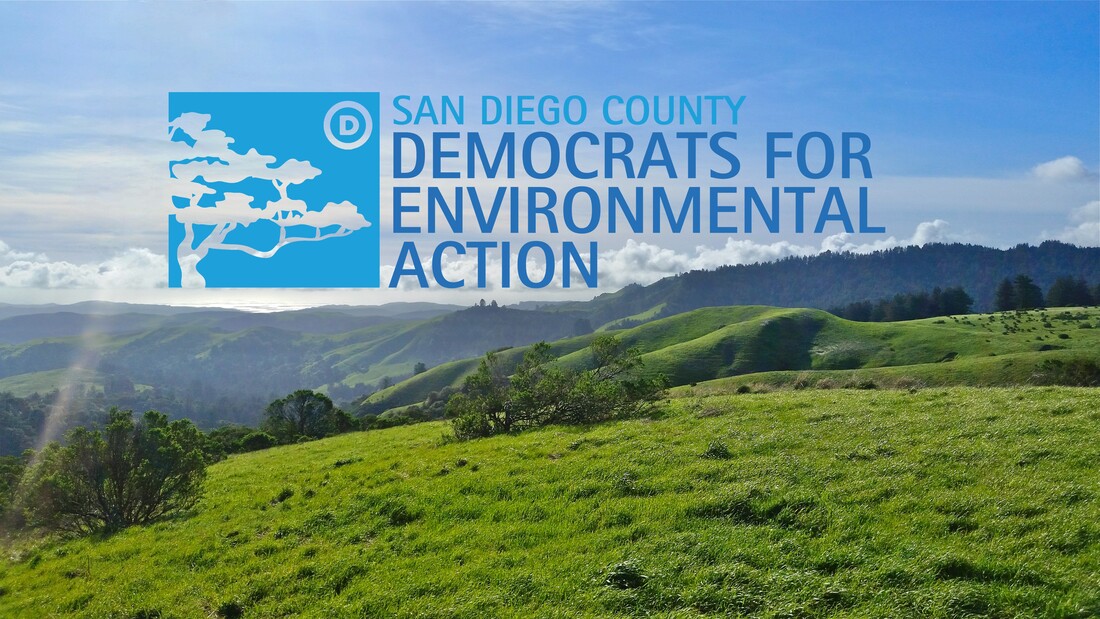
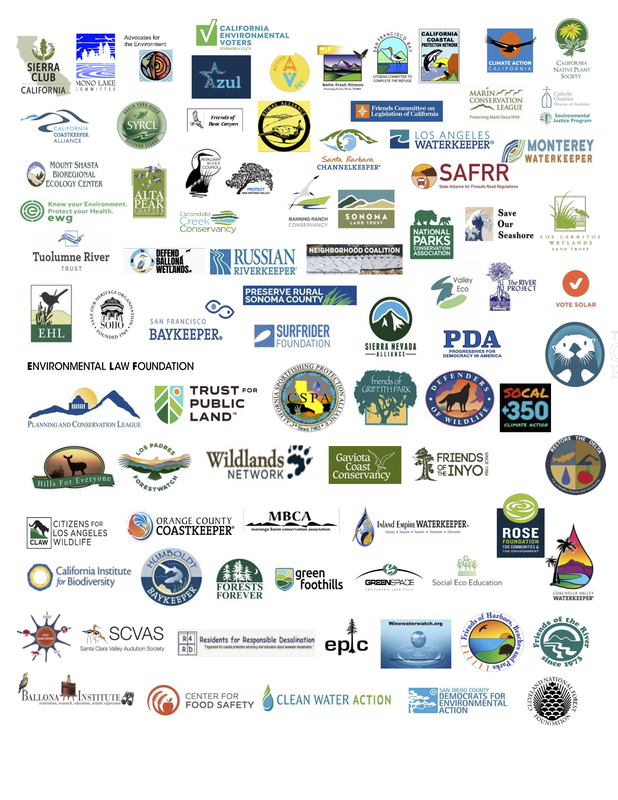
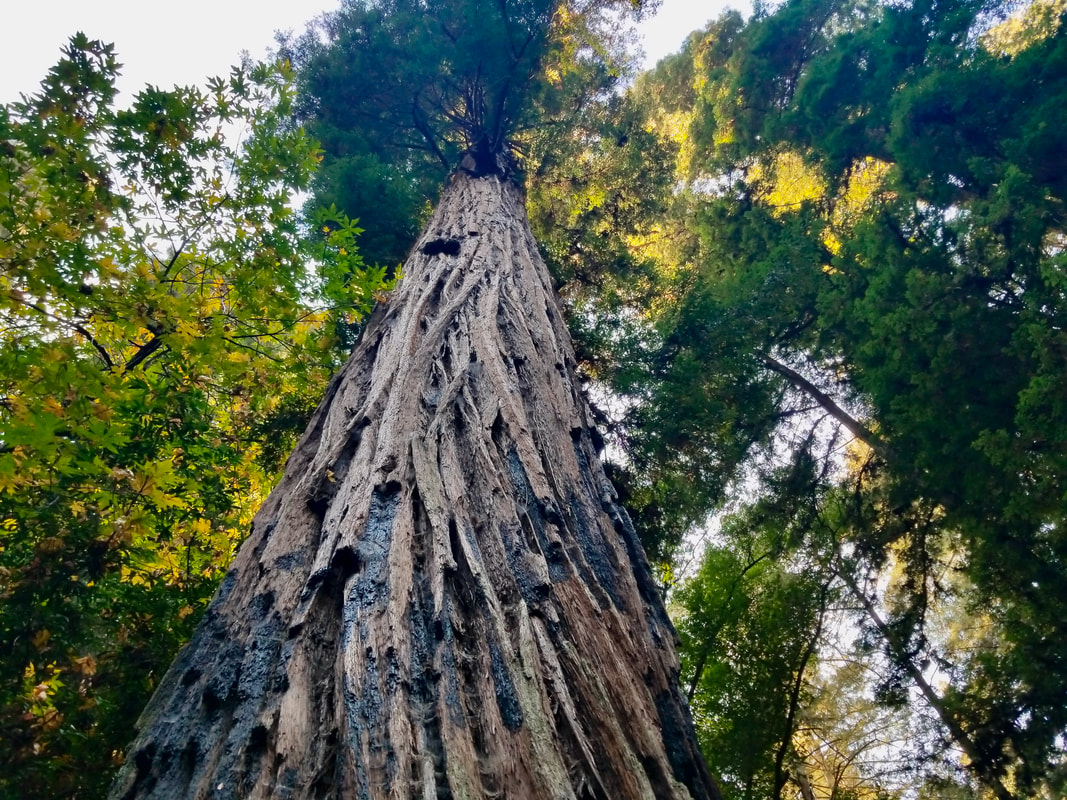
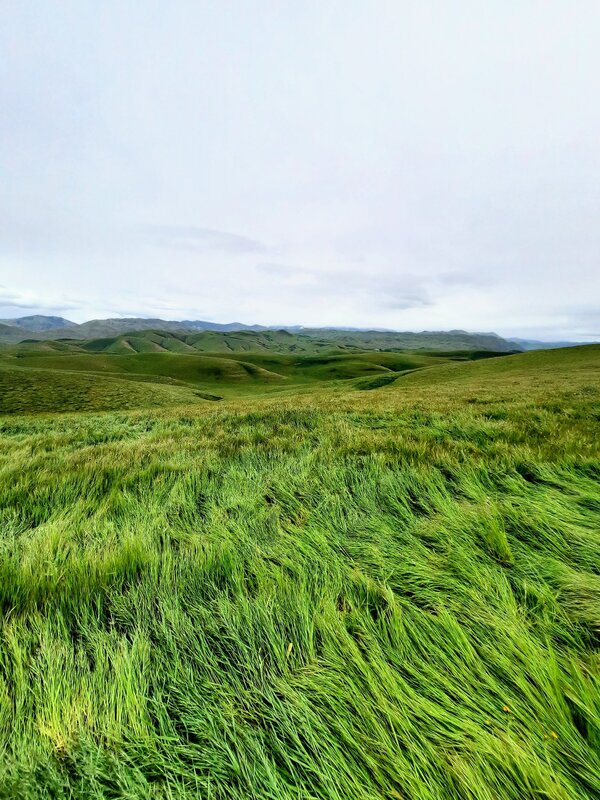
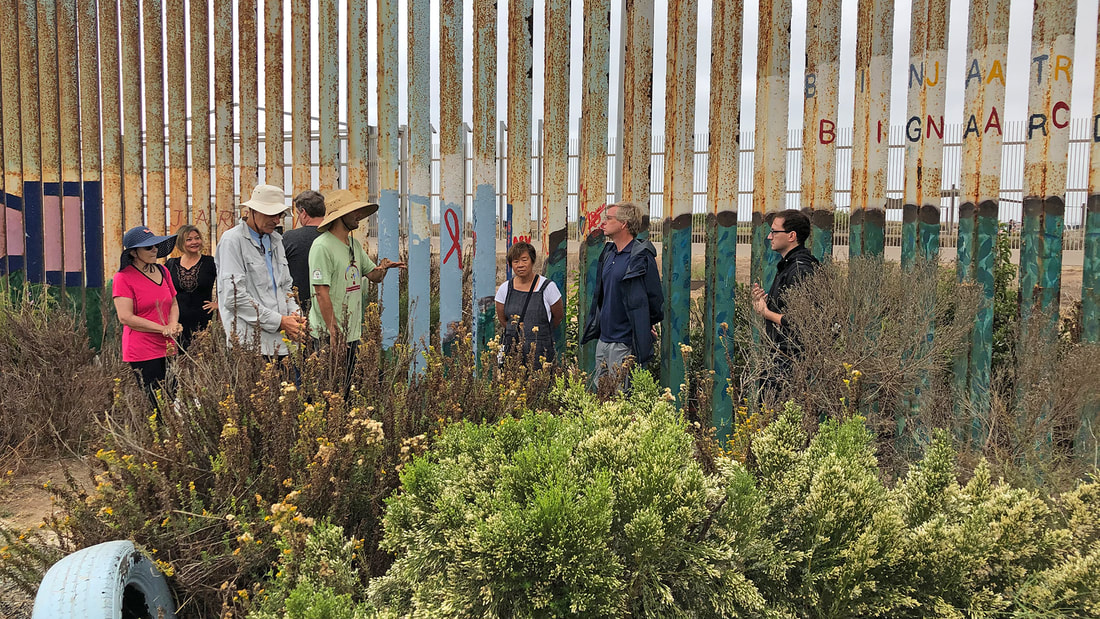

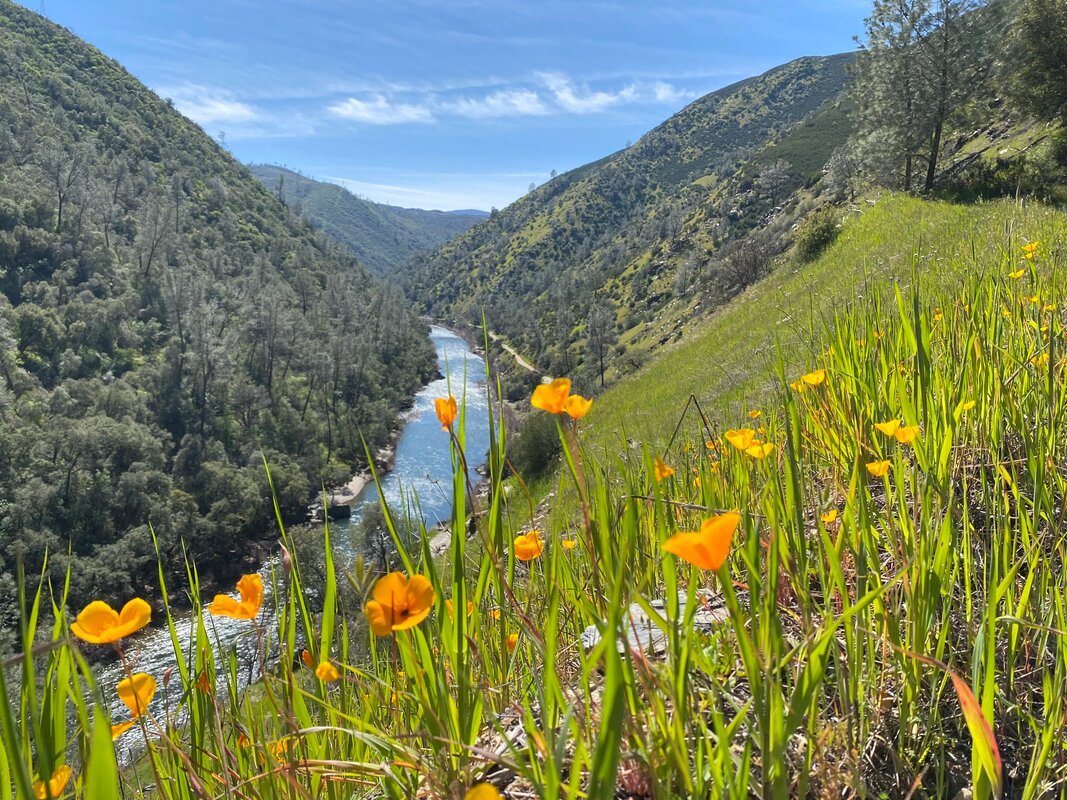
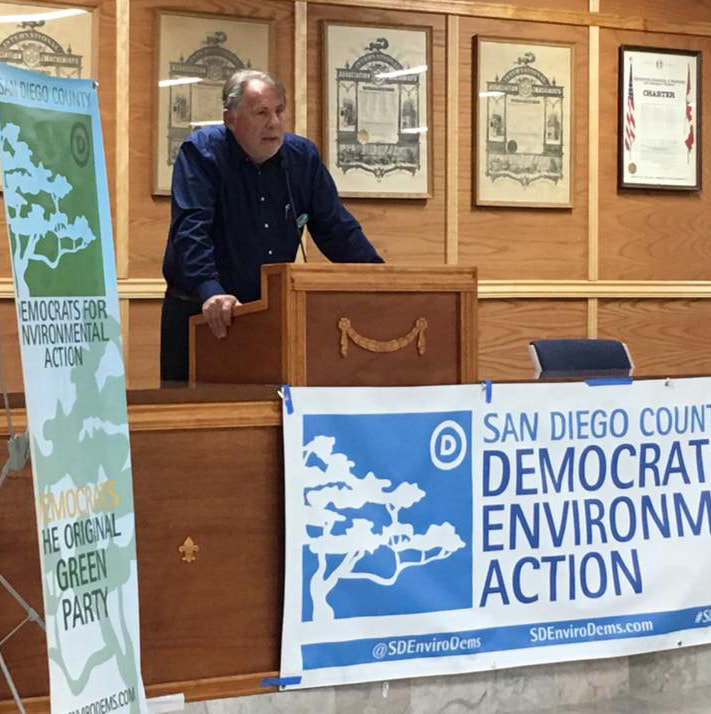
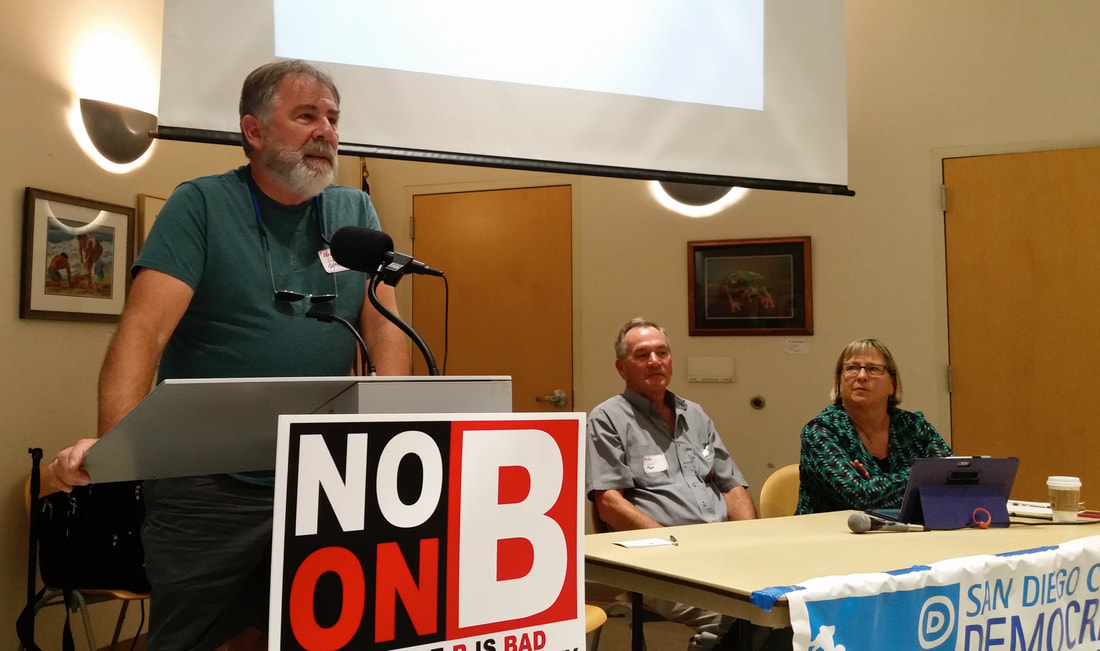
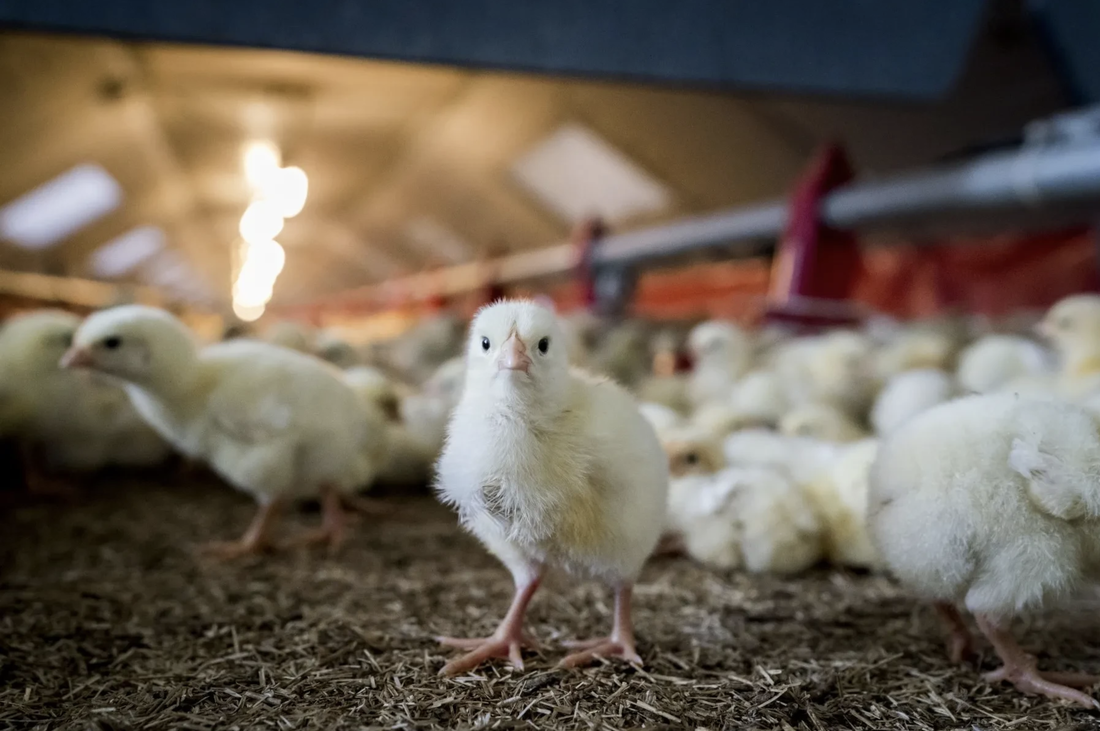
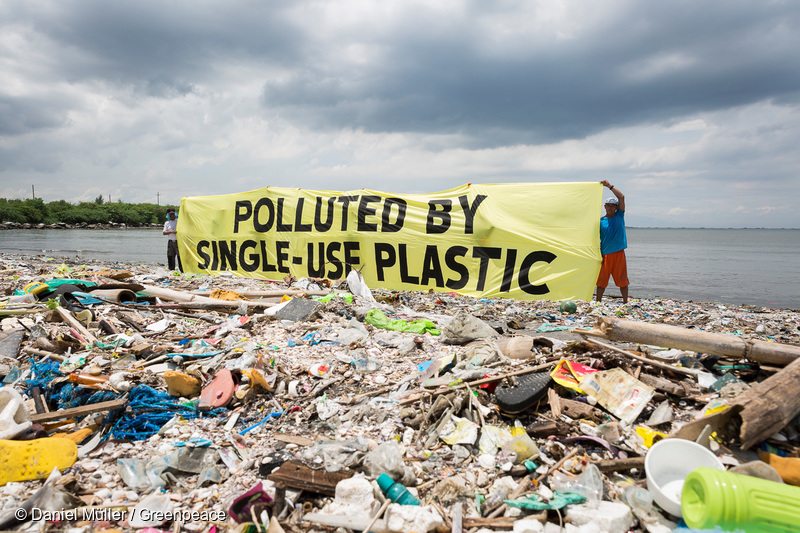
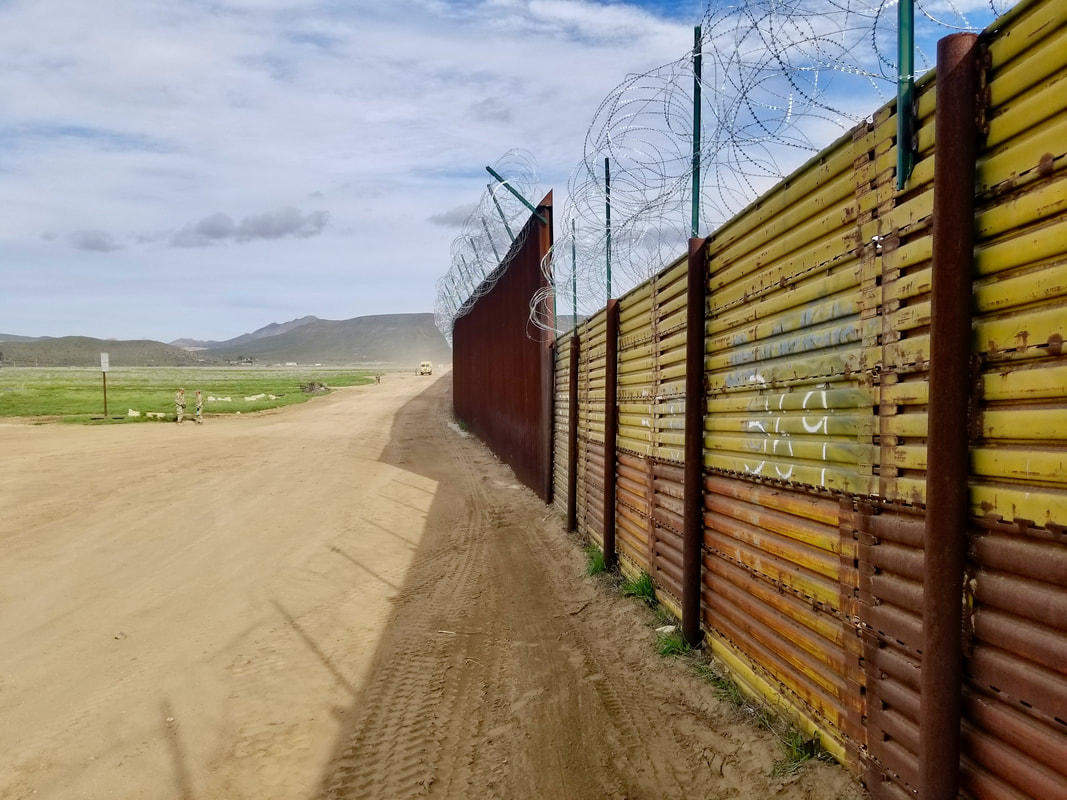
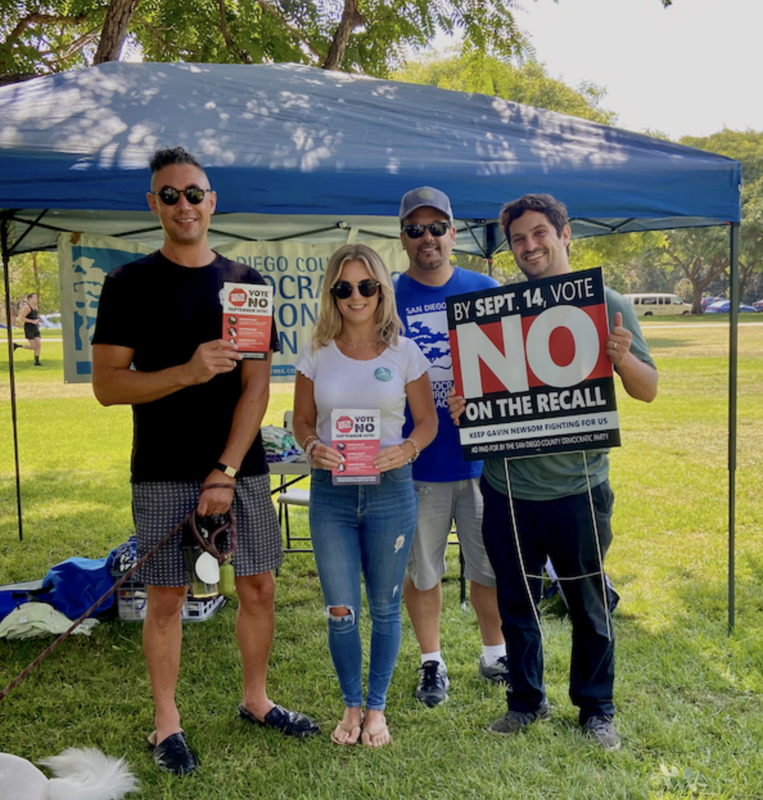
 RSS Feed
RSS Feed

